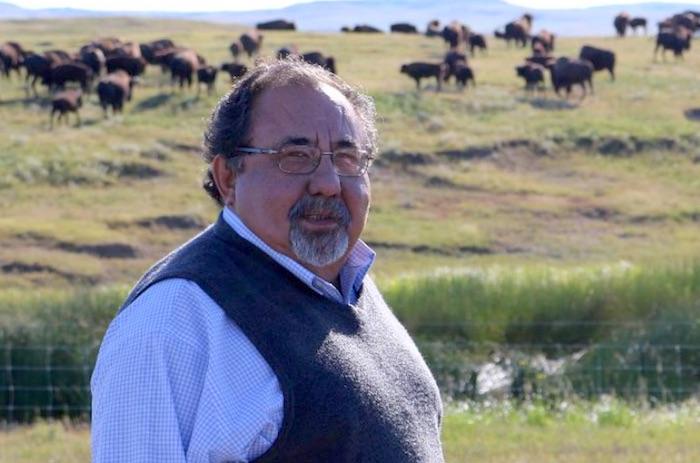
U.S. Rep. Raúl Grijalva intends to have the Natural Resources Committee conduct more vigorous oversight of the Interior Department if he lands the committee chairmanship/House Democrats
U.S. Rep. Raúl Grijalva, in line to become chair of the House Natural Resources Committee in January, hopes to set a new tone and attitude with the committee in its oversight work involving the Interior Department and its many bureaus. Interior Secretary Ryan Zinke, however, might have already ruined that working relationship by tweeting that the Arizona Democrat is a drunk wasting taxpayer money trying to cover up his missteps.
It shouldn't take long to discern whether that working relationship has gone off the rails even before the Democratic majority in the House of Representatives gets seated next month, as Grijalva intends to conduct more oversight of Interior than the committee under Rep. Rob Bishop, R-Utah, has since the Trump administration came into office.
“We don’t want the suppression of science-based decision-making to be taken completely out of the process, the legislative process, the oversight process," the Arizona Democrat said Friday during a wide-ranging conversation. "And so the priorities for us are to reintroduce facts and fact-based science into the process. No. 2, shed some daylight on the consequences of an extraction-only agenda. We want to talk about the impacts on people’s quality of life, who recreate, who uses the public lands. It’s a public accountability issue. And who's really winning from an extraction only agenda."
The same day that Grijalva said he hoped to set a new tone in the committee's work with Interior, Friday, an op-ed in which he called for Secretary Zinke to resign ran in USA Today. That was the searing straw that led to the secretary's ugly tweet, which opened with Zinke writing that "(I)t's hard for him to think straight from the bottom of bottle..."
When asked whether his op-ed would hurt with his desire to instill a new tone and attitude with the secretary and his department, Grijalva said the secretary's departure would help improve the working relationship.
"There’s a bubble of protection by industry around Interior and its secretary and some of the key administrators there, and we feel that one of the ways in which we can begin with a clean slate is Zinke leaving," said the congressman.
Among the first orders of business for the Natural Resources Committee, said Grijalva, is to reissue a great number of requests for information sent to Interior when the Democrats were in the minority and which were ignored.
"We sent close to 60 to 70 inquiries, received no response on any of them from the secretary," the Democrat said. "We’re going to reissue those, so tone becomes how he responds to those and gets us the information that we are asking for now (that we're) the majority. So any followup to that, legally speaking, any options, whether there are subpoenas or not, are going to be entirely dependent on that response."
The congressman is particularly interested in calling hearings into the Trump administration's decisions to greatly shrink Bears Ears and Grand-Staircase Escalante national monuments in Utah, a move that, while the U.S. Bureau of Land Management is moving ahead with developing new management plans for those areas, is under judicial review.
He also wants to shore up funding for the Land and Water Conservation Fund; permanently protect 1 million acres surrounding Grand Canyon National Park that currently are off-limits to new uranium mining claims for 20 years due to a moratorium established during the Obama administration, and; see Interior take more of a multiple-use approach to public lands management, something he believes has been missing under Zinke.
"It’s been a one-use philosophy, and that’s extraction. The (longstanding) mission and the philosophy of our public lands have been multi-use. We want to provide land management agencies through the budget process and appropriation with the resources they need to fulfill that multi-mission that our public lands have," he said. "We want to talk about funding conservation agencies adequately. Because the big part of the problem, policy problem, comes from years of austerity, cutbacks, and the lack of support for science and effective enforcement of our laws."
If, as Grijalva opined Friday, the Senate fails to act during the lame duck session on a measure to provide $6.5 billion over five years to help the National Park Service address its nearly $12 billion maintenance backlog, help could arrive through an infrastructure measure.
"I see the possibility of an infrastructure package, which would be one of the big items for the majority to address maintenance and asset needs across the National Park System," he said. "So we’re going to be very involved in that infrastructure package. And more than half of this so-called backlog in reality is transportation projects and infrastructure projects, so we think that’s one way to address it upfront, money coming out of the highway fund, and advocate for a budget increase in that area."
Grijalva said he also hopes the Natural Resources Committee can find time to consider proposals for parks, monuments, and wilderness areas.

 Support Essential Coverage of Essential Places
Support Essential Coverage of Essential Places







Comments
I sincerely hope so.